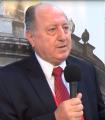- Home
- Current and Emerging Data on SGLT2 Inhibitors in Heart Failure
Current and Emerging Data on SGLT2 Inhibitors in Heart Failure
- CV Renal Metabolic
- Heart Failure
- Prevention
Available Credit:
- 1.00
Course Published On:
Course Expiry Date:

Overview
The opportunity for cardiovascular disease prevention in patients with type 2 diabetes mellitus (T2DM) has recently expanded with antihyperglycemic agents demonstrating significant reductions in the risk of major adverse cardiovascular events (MACE) including sodium-glucose co-transporter-2 (SGLT2) demonstrating robust reductions in heart failure (HF). Although the exact mechanisms of cardiovascular (CV) benefit remain uncertain, they appear to be unrelated to the direct glucose-lowering effects.
Recent trials — including the recently presented DAPA-HF — have provided further insight into the effectiveness of SGLT2 inhibitors in patients with heart failure with reduced ejection fraction (HFrEF) and heart failure with preserved ejection fraction (HFpEF) in the absence of T2DM.
Support Statement
This activity has been supported by an unrestricted educational grant from AstraZeneca.
Disclosure
In compliance with EBAC / EACCME guidelines, all speakers/chairpersons participating in this programme have disclosed or indicated potential conflicts of interest which might cause a bias in the presentations.
The Organising Committee/Course Director is responsible for ensuring that all potential conflicts of interest relevant to the event are declared to the audience prior to the CME activities.
Terms & Conditions
Radcliffe Education requires contributors to our CME programmes to disclose any relevant financial relationships that have occurred within the past 12 months that could create a conflict of interest. These will be identified in the faculty section if applicable.
Instruction to Participants
There is no fee for taking part in this online learning activity.
Activities are designed to be completed within 60 minutes and must be completed by the registered user. Physicians should only claim credits for time spent on the activity. To successfully earn credit, participants must complete the activity in full in the indicated time frame.
To complete the course and claim certification participants must:
1. Read the course outline information supplied and complete pre-test questions if supplied prior to starting the activity. Users must read and study the activity in its entirety before completing the post-test questions.
2. Your results will be automatically saved and if a pass score is achieved (where applicable), you may be eligible to claim credit for the activity and receive a certificate of completion.
Target Audience
- Heart Failure Specialists
- General Cardiologists
Learning Objectives
Upon completion of this activity, participants will be able to:
- Understand the SGLT2 inhibitor cardiovascular outcome trial (CVOT) data;
- differentiate the latest guideline updates for the treatment of T2D and their recommendations regarding the importance of considering comorbidities, including atherosclerotic cardiovascular disease (ASCVD) and heart failure (HF);
- apply clinical and real-world evidence of the SGLT2 inhibitor class for use in prevention of hospitalisation in HF, as well as future ongoing studies in the treatment of HF;
- assess the interrelationships linking diabetes, HF and CVD;
- interpret the potential cardio-renal mechanisms of the SGLT2 inhibitor class in reducing the risk of CV, including HF. Evaluate emerging data of the treatment of HF with SGLT2 inhibitors in patients with or without T2DM.
Welcome and Introduction
Duration:
Speakers: Felipe Martínez (Universidad Nacional de Córdoba, Córdoba, AR)
SGLT2 in HF-Now and in the Future
Duration:
Speakers: Carolyn Lam (University of Singapore, Singapore, SG) Andrew JS Coats (Monash University Melbourne, Melbourne, AU)
DAPA-HF – Clinical Trial Design Rationale
Duration:
Speakers: Felipe Martínez (Universidad Nacional de Córdoba, Córdoba, AR)
SGLT2i Beyond Diabetes – Mechanism of Benefit in CVD
Duration:
Speakers: Lars H Lund (Karolinska Institutet, Stockholm, SE)
Current Guidelines, Recent Data and Future Practices
Duration:
Speakers: Scott Solomon (Harvard Medical School, Boston, MA, US) Andrew JS Coats (Monash University Melbourne, Melbourne, AU)
The Dapagliflozin and Prevention of Adverse Outcomes in HF trial
Duration:
Speakers: Frank Ruschitzka (University hospital Zurich, Zurich, CH)
DAPA-HF – Interview with the Trialists
Duration:
Speakers: John JV McMurray (Glasgow, UK) Mikhail Kosiborod (Saint Luke’s Mid America Heart Institute, Kansas City, US)
Summary and Conclusions
Duration:
Speakers: Felipe Martínez (Universidad Nacional de Córdoba, Córdoba, AR)
Course Director
Speaker
The event ‘Current and Emerging Data on SGLT2 Inhibitors in Heart Failure’ is accredited by the European Board for Accreditation in Cardiology (EBAC) for 1 hour of external CME credits.
Each participant should claim only those hours of credit that have actually been spent in the educational activity. EBAC works according to the quality standards of the European Accreditation Council for Continuing Medical Education (EACCME), which is an institution of the European Union of Medical Specialists (UEMS).
Through an agreement between the European Board for Accreditation in Cardiology and the American Medical Association, physicians may convert EBAC External CME credits to AMA PRA Category 1 Credits™. Information on the process to convert EBAC credit to AMA credit can be found on the AMA website.







